When you visit Japan in the autumn, you’ll undoubtedly want to savour brisk mornings and clear-blue skies while parks full of trees display stunning red, orange and golden-hued leaves before they finally fall.
Between October and November, Japanese families, friends and couples alike partake in autumn leaf-hunting, or momijigari – the cool weather counterpart of the more famous cherry blossom season that’s held in spring. Japanese culture has a deep appreciation for impermanence, and this drives people out to parks and forests all over the country to admire the ephemeral beauty of the changing colours each year.
Want to give momijigari a go? Here are a few places in Japan where you can fully immerse yourself in the changing seasons. And don’t forget to check the website of the Japan Meteorological Corporation to find out when you can see the best autumn colours.
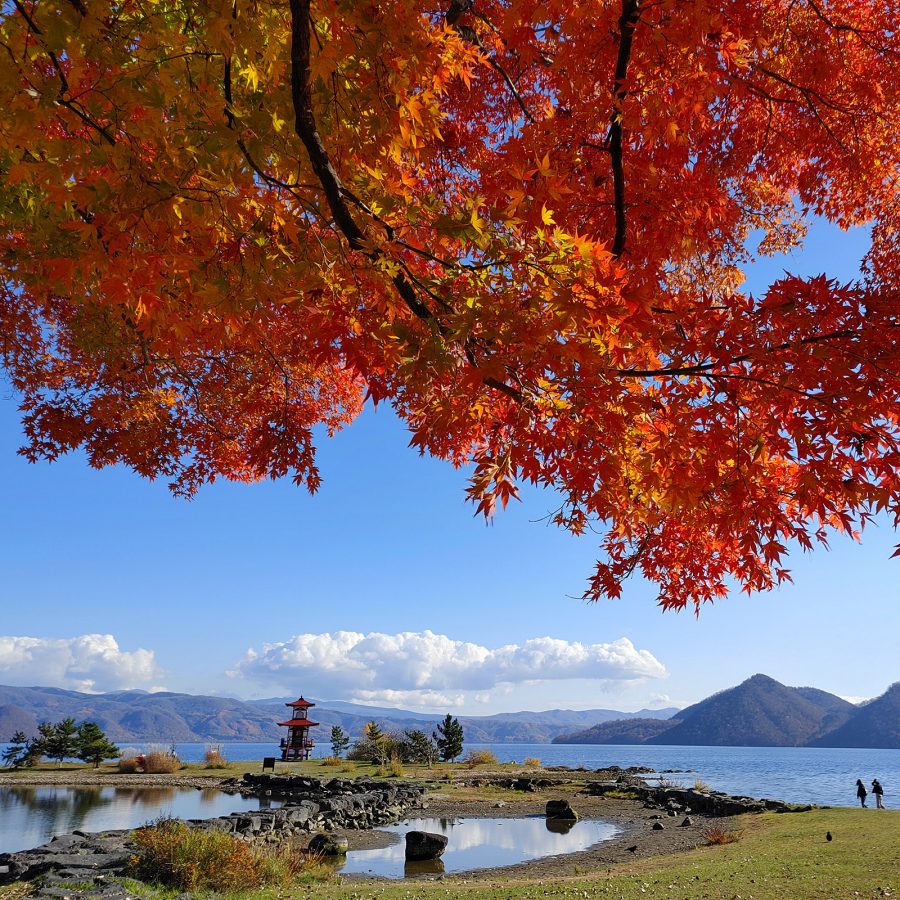
Credit: Shikotsu-Toya National Park Management Office

Credit: SeanPavonePhoto/Getty Images
For onsen
From Sapporo: Shikotsu-Toya National Park
Conveniently located near Sapporo, Shikotsu-Toya National Park is home to natural hot springs, making it the perfect spot if you want to take in some onsen alongside your leaf-hunting. Most visitors frequent the Jozankei Onsen , from which it’s easy to make a side trip to the wonderfully clear waters of Lake Shikotsu. Up for a challenge? The park is also home to Mount Yotei, Hokkaido’s answer to Mount Fuji, which you can summit for spectacular views of the park and its dreamy autumn colours from high above the treeline.
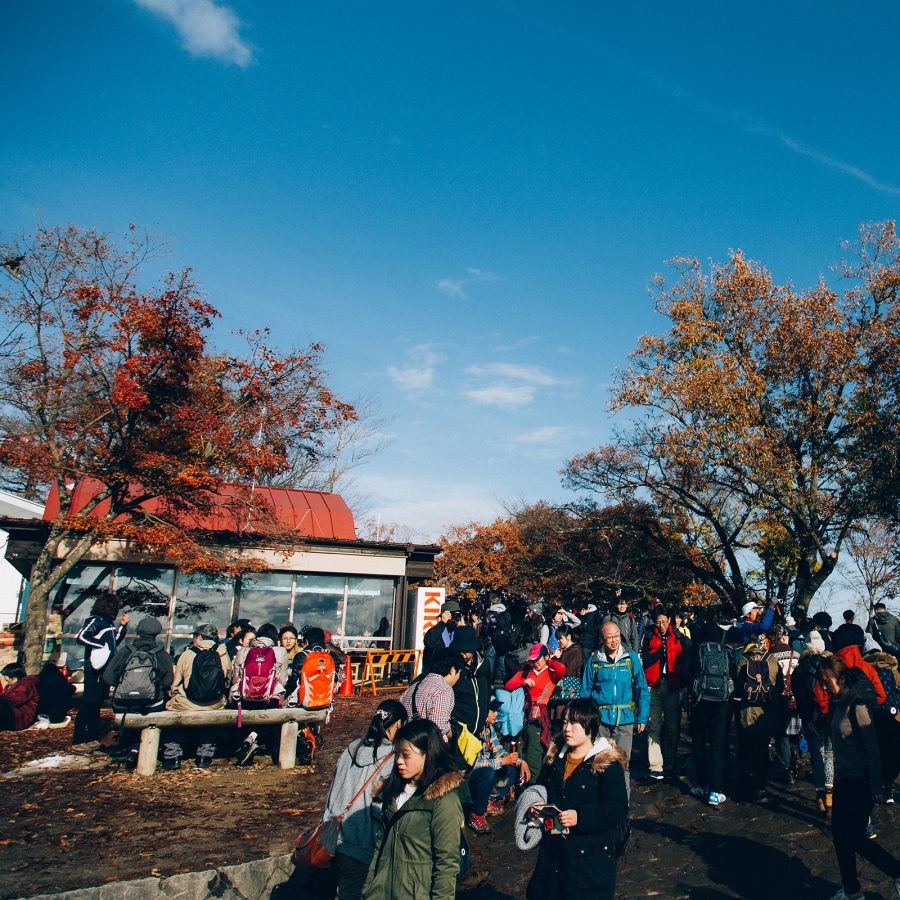
Credit: Selina Yau/Getty Images
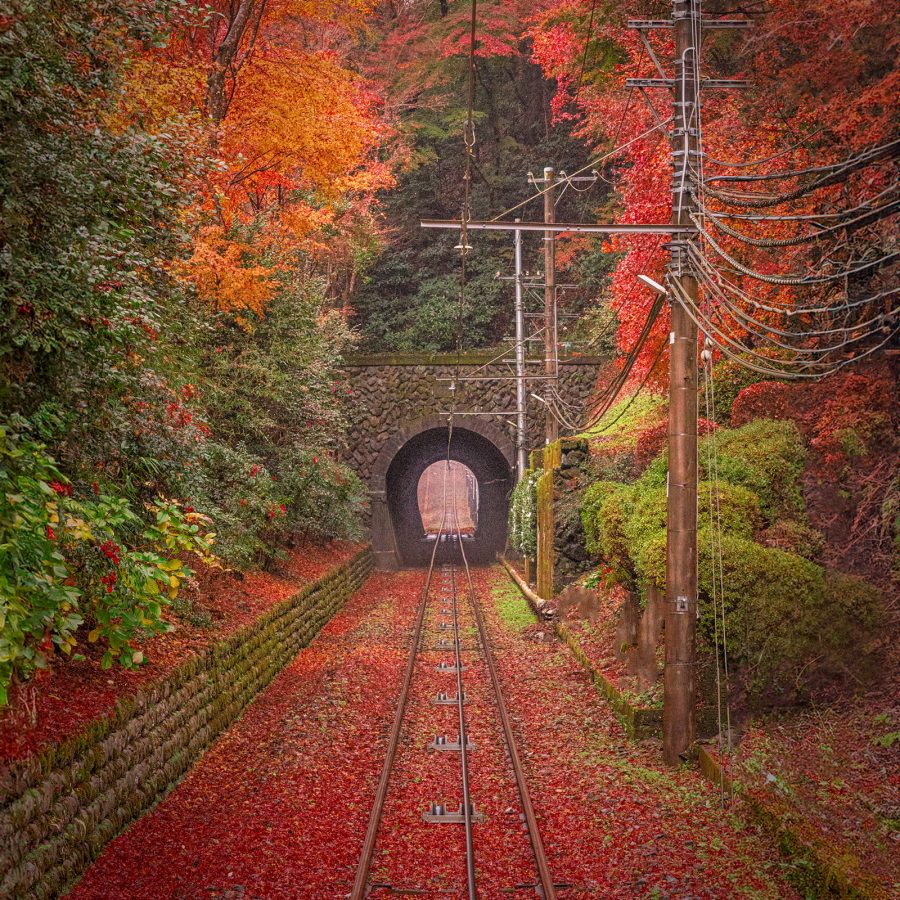
Credit: JOY PAN/Getty Images
For hikes
From Tokyo: Mount Takao
This popular and easily accessible destination for hiking features seven different trails of various difficulties. First-time visitors looking for a gentle hike should walk Trail 1, a paved loop that passes many must-see sites. One highlight to have at the top of your list is Takaosan Yakuoin Yukiji Temple, whose ornamental roofs become partly obscured by branches turning various shades of red. Meanwhile, the Takao Tozan Railway cable car provides a shortcut from the base to midway up the mountain, chugging through a tunnel of crimson leaves. From here, you can walk to the summit for views of Mount Fuji rising above a canopy dappled with copper. The peak viewing season is from mid-November to early December.

Credit: Twenty47studio/Getty Images
For road trips
From Tokyo: city of Nikko
Swing by a number of vistas on a day trip from Tokyo to Nikko. From Nikko, turn onto the Irohazaka, a winding road with dozens of hairpin turns – famous for its close-up view of a mottled autumnal tapestry. Just before you reach the edge of Lake Chuzenji, formed by the eruption of nearby Mount Nantai, stop by the Akechidaira Ropeway. A cable car brings you up the mountain for spectacular views of Kegon Waterfall, which appears to spill out the side of the lake among colourful patches of forest. Continue your drive along the lake to discover Ryuzu Falls, where twin cascades thunder past maple trees turning golden.
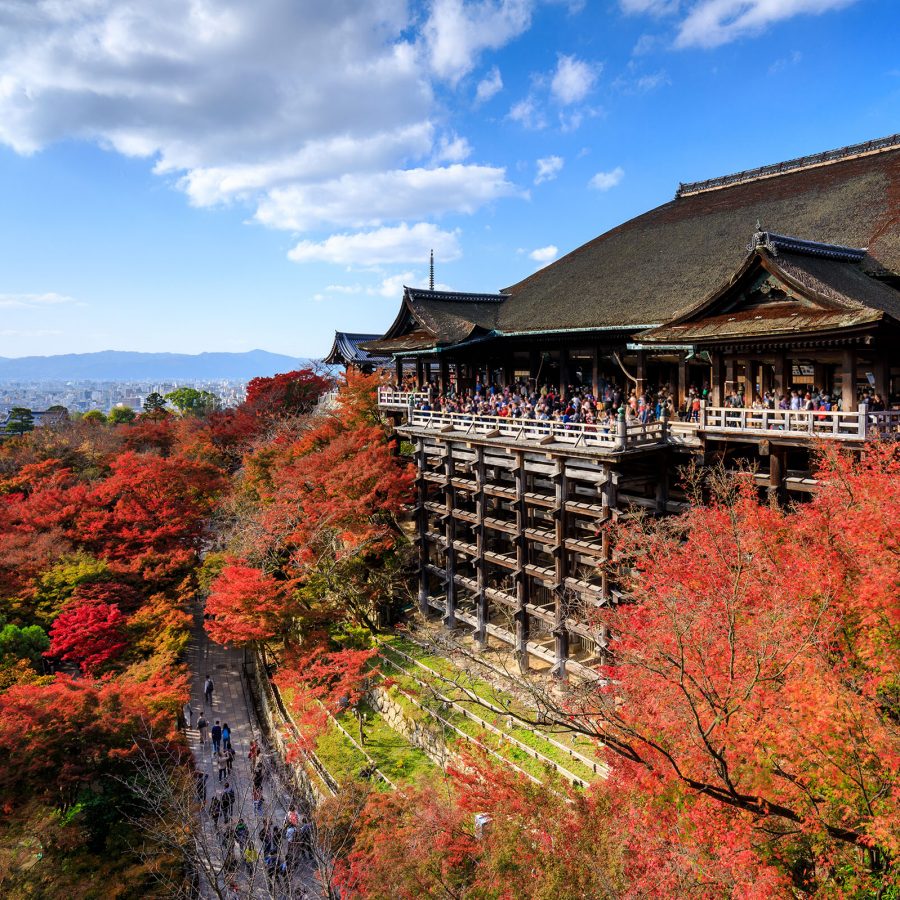
Credit: lkunl/Getty Images
For iconic photos
From Osaka: Kiyomizu-dera Temple
This temple devoted to Kannon (Guan Yin) was founded over 1,250 years ago and sits on a hill just a twenty-minute walk from the Kiyomizu-Gojo railway station. Its main hall and wooden veranda provide ample space for visitors to admire the cherry and maple trees vying for attention with their vermillion and bronze-tinted hues below. You’ll find plenty of opportunities to get the perfect shot of the temple framed by autumn leaves both during the day and night – the latter made possible only three times a year when special lighting sets the forest aglow.
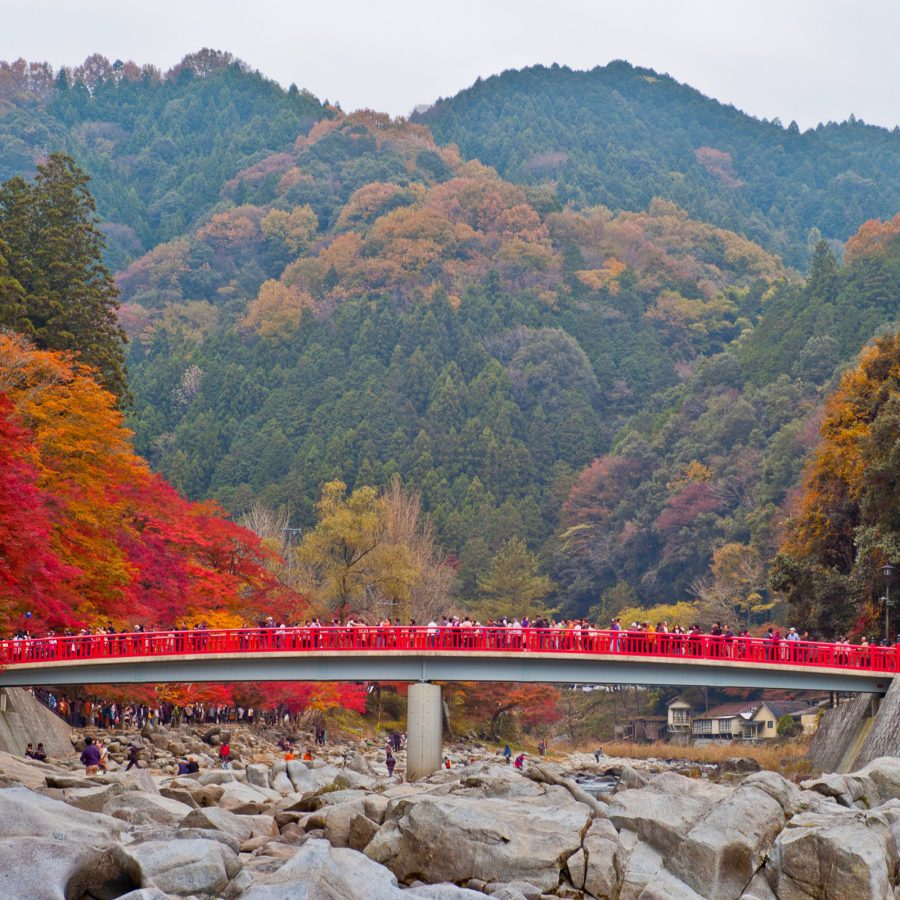
Credit: Mark McDonald/Getty Images
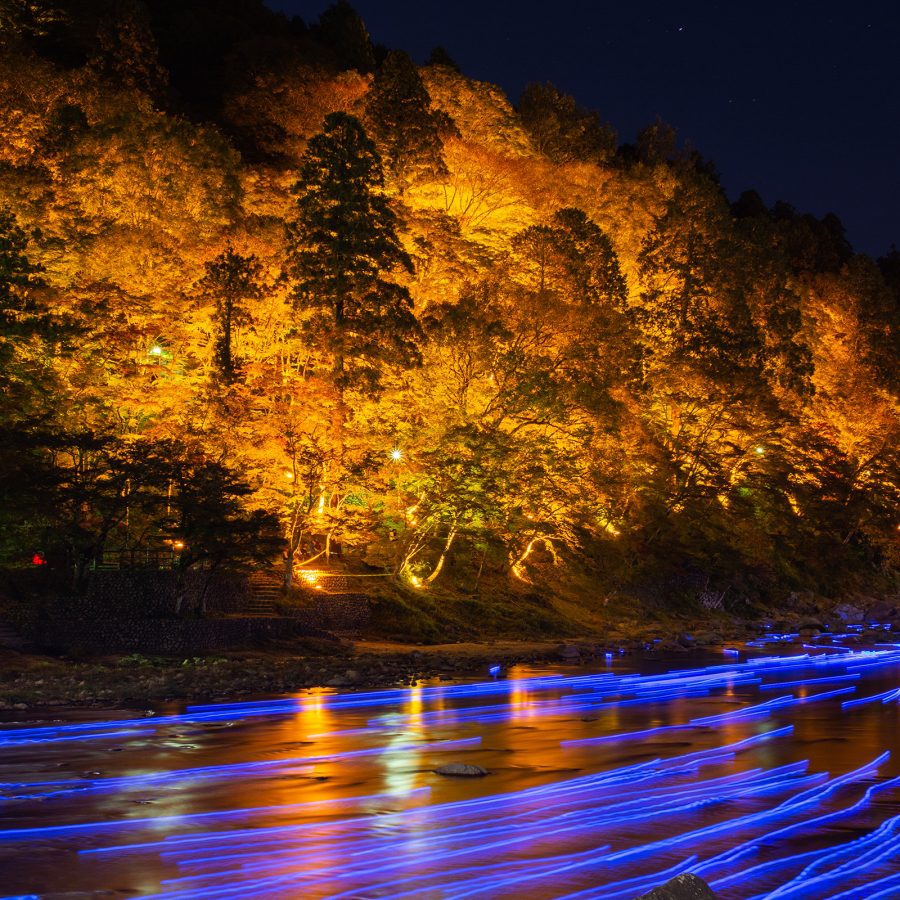
Credit: Katsuhiro Kojima/Getty Images
From Nagoya: Korankei
A well-known valley for autumn sightseeing, Korankei evokes a sense of mystical wonder. The bright red railing of Taigetsukyo Bridge crossing the shallow Tomoe River stands out vividly against drooping branches laden with fiery maple leaves, making it an iconic backdrop for photos. During the annual Korankei Maple Festival, food stalls line the area and the forest is illuminated like a golden dome at night.
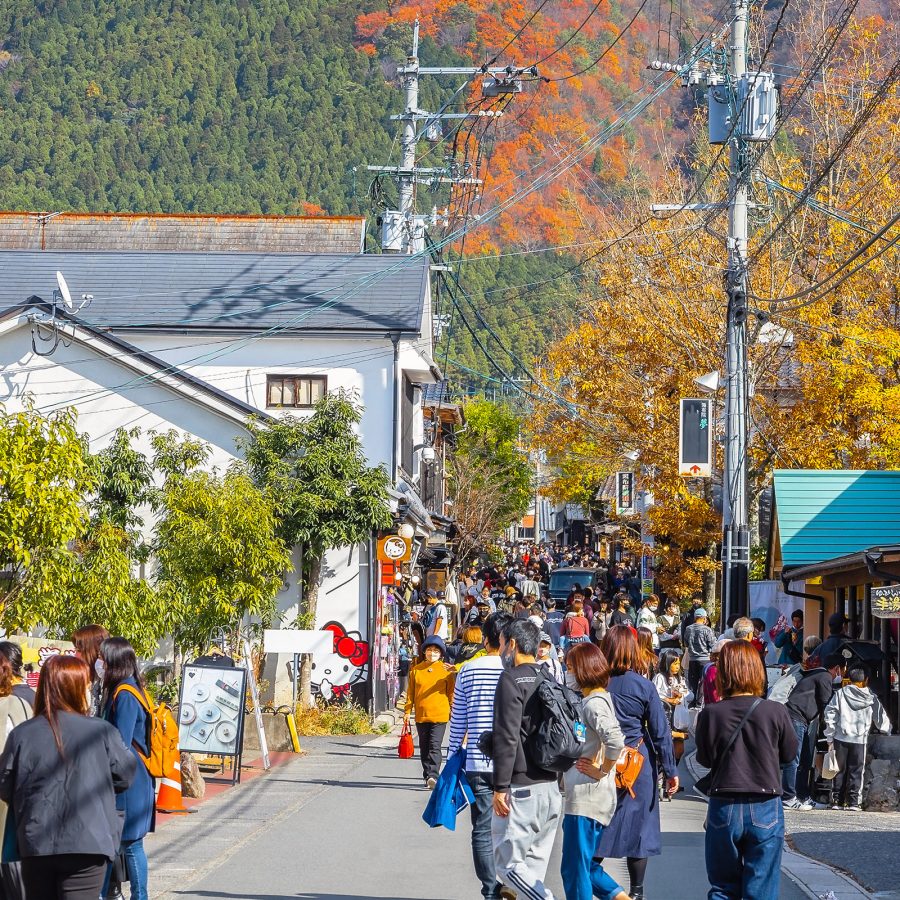
Credit: coward lion/Getty Images
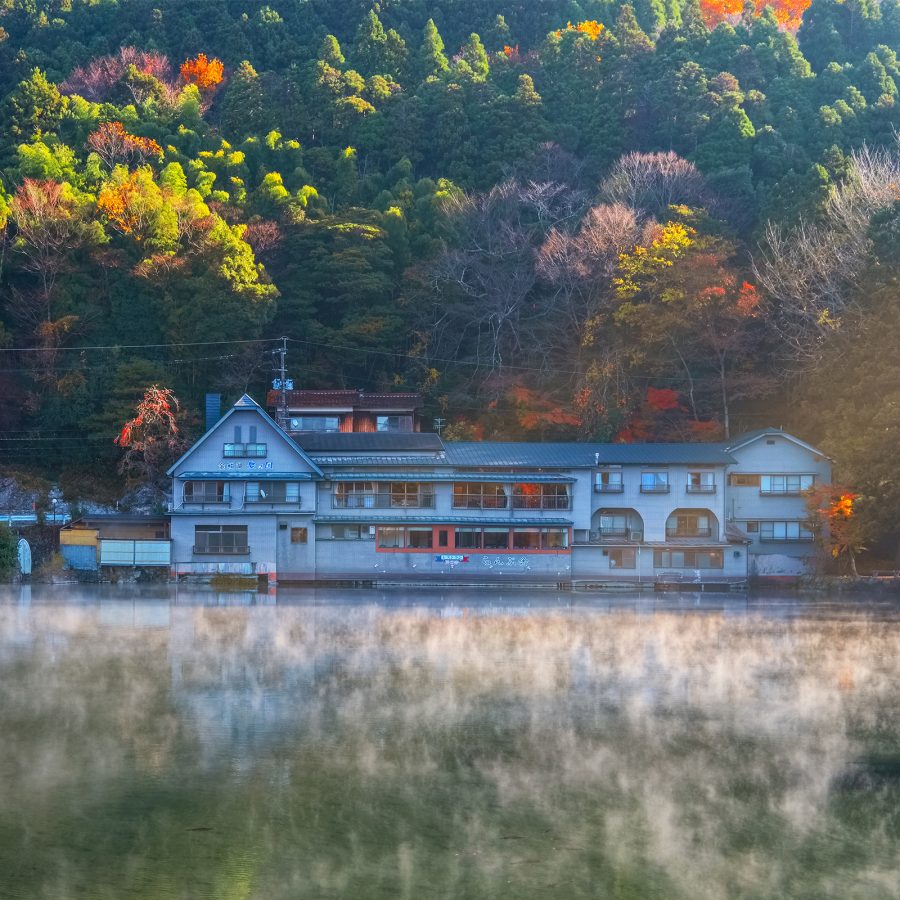
Credit: coward lion/Getty Images
For all of the above
From Fukuoka: Kuju Mountains
Add this stop to your Fukuoka itinerary if you’re dropping by Oita prefecture. From late October to mid-November, Aso Kuju National Park is blanketed in autumn hues. Oike Pond, a crater lake bordered by a scarlet ring of forest just below the summit of Mount Taisen, is one of the visual highlights. Even if you choose not to scale this volcanic mountain range – often referred to as the “roof of Kyushu” – there’s still plenty to do, with nearby options for onsen and ryokan-style accommodation in Oita.
This article was originally published in August 2023 and updated in August 2025.
More inspiration
- China – the Chinese Mainland, Hong Kong SAR, Macao SAR and Taiwan Region
- Hong Kong SAR - English
- Chinese Mainland (China) - English
- Taiwan, China - English
- 香港特別行政區 - 繁體中文
- 中国內地 - 简体中文
- 中國台灣 - 繁體中文
- Africa
- South Africa - English
- Asia
- Bangladesh - English
- Korea - English
- Singapore - English
- Cambodia - English
- 한국 - 한국어
- Sri Lanka - English
- India - English
- Malaysia - English
- Thailand - English
- Indonesia - English
- Maldives - English
- ประเทศไทย - ภาษาไทย
- Indonesia - Bahasa Indonesia
- Myanmar - English
- Vietnam - English
- Japan - English
- Nepal - English
- Việt Nam - tiếng Việt
- 日本 - 日本語
- Philippines - English
- Australasia
- Australia - English
- New Zealand - English





.renditionimage.450.450.jpg)

